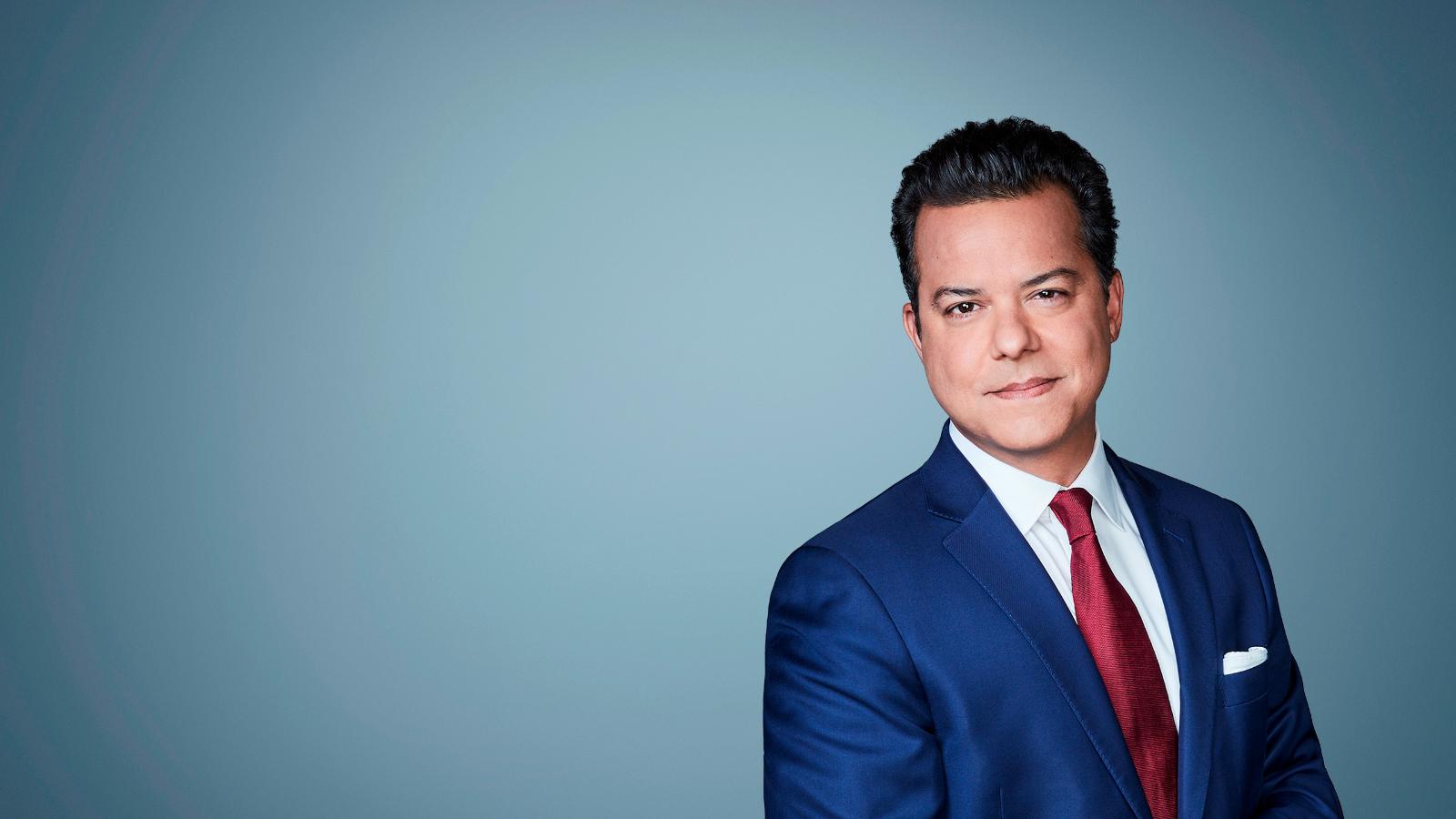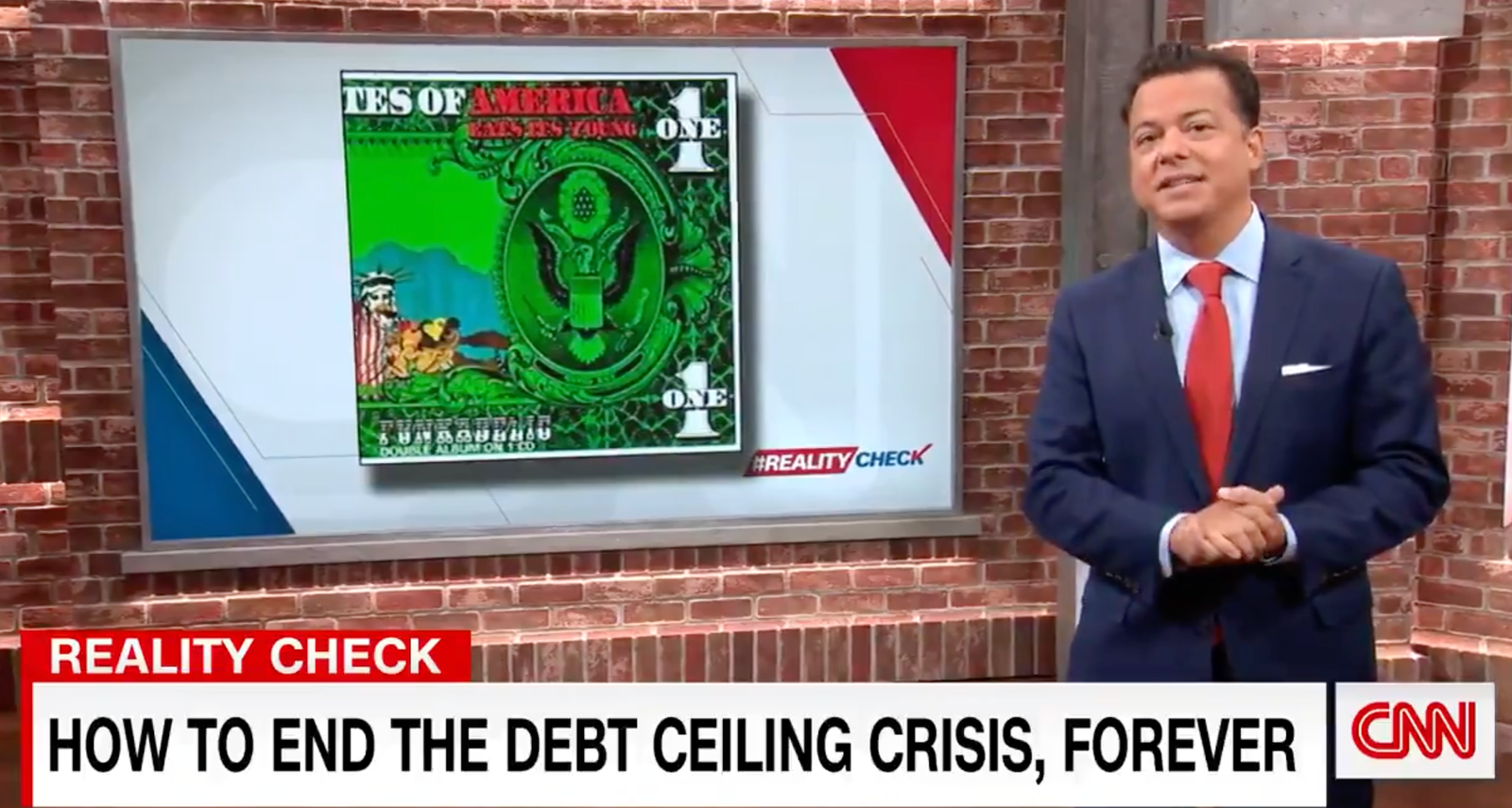Tackling anti-vaxxers, conspiracy theories and QAnon
 An exclusive inside look with your free CNN account ✅ John Avlon's formula for debunking bogus claims John Avlon wants to tackle extremism one fact at a time.
The CNN senior political analyst is a common face on "New Day" poking holes in some of the wild conspiracy theories taking hold in mainstream society. His new video series, "Reality Check with John Avlon: Extremist Beat," is an even deeper dive into how these theories originate and gain notoriety – debunking them every step of the way.
"We are living through an almost-unprecedented war on truth, and journalists are really on the front lines," he says as he describes what led to the series.
"There are authoritarian powers trying to erode the credibility of liberal democracy. The disinformation wars are a direct extension of that effort, to divide democracies, to turn our core strength of pluralism into a weakness through polarization and hyper-partisanship. And so I think that's why we need to confront it clearly and squarely and unapologetically."
Avlon's interest in extremist groups started after 9/11, specifically with the so-called "9/11 Truthers" – people who support a conspiracy theory that disputes the fact that al Qaeda was behind the Twin Tower attacks. Avlon was serving as the chief speechwriter for New York City Mayor Rudy Giuliani at the time and says, "Seeing the conspiracies take root even in New York City was sort of stunning to me, just to understand how that works."
That fascination continued into the first few years of the Obama administration as the far-right tea party began to distort political debate. "As some of the more unhinged accusations started to take root, I started writing a series of columns on these groups," Avlon says. Those columns evolved into a CNN "American Morning" segment called "Wingnuts of the Week" and finally into his 2010 book, "Wingnuts: How the Lunatic Fringe is Hijacking America."
A self-confessed history nerd and lead singer in his high school and college rock bands – named Blind Dog Whiskey and Angel Carver Blues, respectively – Avlon's formula of dissecting disinformation often contains both history and pop culture references. "News doesn't need to taste like medicine," he says. A recent Reality Check on the debt ceiling and America's risk of default was framed through a track from the 1972 Funkadelic album, "America Eats Its Young," specifically the tune "If You Don't Like the Effects, Don't Produce the Cause."
"We create these relatable layers that may have different entry points," he explains. "It's our job as journalists to make important stories interesting." But Avlon doesn't just want to expose lies, he wants to offer solutions as well. "I think you're providing a real service that may help the fever break in some folks, that may raise awareness about the scams that are being sold by conspiracy entrepreneurs online. And it can highlight the power of journalism or just the power of citizens to reason together, which itself is being called into question," he says.
What's his advice on dealing with people who may believe bogus claims? "It's incredibly important, however difficult, to approach it from a position of empathy, not judgment," he says.
"Conspiracy theories and cultlike dynamics in our current politics really come out of a deep sense of need to feel belonging. There's a deep alienation. What's dangerous is that people can go down these rabbit holes into conspiracy theories, but that community is so supportive, and mutually reinforcing the danger, of course," he explains.
So far his series has tackled anti-vaxxers, QAnon, the role of militias in America and the history of disinformation. Upcoming episodes will talk about climate change denial and the origins of White identity politics.
Asked if he's ever fallen for a conspiracy theory himself, Avlon says no and explains why. "I worked in government in my 20s. And if you've worked in government, one of the things it does is cures you of the idea. The government, in particular, is not organized enough to pull off a massive conspiracy. I mean, you know, it's a collection of individuals with all their strengths and weaknesses and inherent flaws, just like newsrooms are. It's a human enterprise. And that itself is the greatest check on a large level against corruption and conspiracies."
You can catch tomorrow's episode at 6 p.m. ET on CNN.com.
💡 more facts, less fiction
✍️ tell us what you think How are you enjoying this newsletter? Let us know what topics you'd like to see us cover and what you've enjoyed so far. Send us a note at insidecnn@cnn.com. We look forward to hearing from you.
- Written and edited by Beryl Adcock, Tricia Escobedo, Melissa Mahtani and Jessica Sooknanan INSIDE CNN An exclusive inside look with your free CNN account You are receiving this newsletter because you created a free CNN account.
No longer want to receive this newsletter? Unsubscribe. Interested in more? See all of our newsletters.
Create CNN Account | Listen to CNN Audio | Download the CNN App
® © 2021 Cable News Network, Inc. A WarnerMedia Company. All Rights Reserved. One CNN Center Atlanta, GA 30303
|




